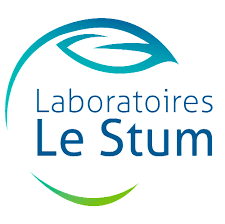
What is collagen?
Collagen. This word has appeared almost everywhere in recent years, from beauty products to dietary supplements. But what is it exactly? Essential to the structure of many tissues in our body, it is the backbone of our skin, hair, nails, as well as our joints and bones. While the cosmetics industry presents it as an elixir of youth, health experts praise its benefits for overall well-being.
Collagen at a glance
Collagen is a protein found abundantly in our bodies. To give you an idea, it's a bit like the bricks and mortar of a building, providing structure and support to our skin, bones, tendons, ligaments, and of course, our cartilage. Its structure is unique: imagine three protein chains coiled into a sort of helix, like the strands of a rope. These helices come together to form a strong yet flexible matrix.
There are different types of collagen, each with a specific function, but the most commonly discussed type in relation to cartilage and joints is type II collagen. As for its sources, collagen is primarily extracted from the skin and bones of animals, particularly cattle, fish, and poultry.
The different types of collagen
Collagen, often referred to as a single substance, is actually a family of proteins with many faces. There are currently no fewer than 28 different types of collagen, but some of them are more predominant and play key roles in our bodies.
• Type I makes up nearly 90% of our body's collagen and is found primarily in skin, tendons, bones, and organs. It contributes to tissue resistance to stretching.
• Type II is the main component of cartilage, the elastic substance that forms a cushion between our bones.
• Type III, on the other hand, often accompanies type I and is found in muscles, organs, and blood vessels. It is crucial for the strength and elasticity of these tissues.
• Finally, types IV and V play specific roles in kidney filtering and cell surface, respectively.
Each type of collagen has a unique structure and function, making this protein both complex and essential for the health and vitality of our body.
Collagen hydrolysate vs native collagen
But why would we want pieces of collagen instead of the whole protein? The answer lies in digestibility and absorption. Native collagen, in its whole form, is a very large and complex molecule. If you were to consume it as is, your body would struggle to break it down and use it effectively. In contrast, collagen hydrolysate, thanks to its smaller size, is quickly absorbed into the bloodstream after ingestion and is then directed to areas where it is most needed, such as damaged joints.
Hydrolysis: Transformation of collagen
So, how do we go from collagen to collagen hydrolysate? This is where the process of hydrolysis comes in. Simply put, hydrolysis is a chemical reaction that "cuts" the long protein chains in collagen into smaller pieces, called peptides. These collagen peptides have a lower molecular weight, making them easier for our bodies to digest and absorb.
In short, by choosing collagen hydrolysate, you're giving your body a "pre-digested" and optimized form of collagen, ready to be used to strengthen and repair your tissues. So that's what collagen hydrolysate is: a body-building powerhouse, processed for maximum action.
Collagen, why do it?
By exploring the complexities of collagen, we discovered its fundamental role in our bodies and the necessity of its various forms. From its native state to its transformation into hydrolyzate, each step reveals the ingenuity of nature and scientific advances in maximizing the benefits of this essential protein.
At the end of this exploration, one question remains: if collagen is so crucial to our well-being, in supplement form, can it act on areas as specific as cartilage regeneration? Stay tuned, because our next article will dive into the heart of this question, revealing the secrets of collagen in the fascinating process of cartilage regeneration.





